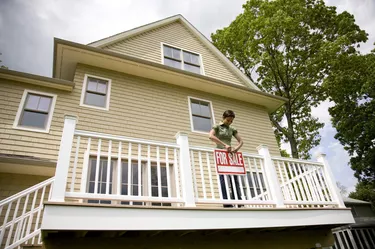
When your mortgage is delinquent and you fail to make new arrangements with the lender, it may foreclose on your home. However, the bank typically can't foreclose until it's filed a lawsuit and obtained permission from the court. If the court dismisses the lawsuit, the lender must either refile the suit or try to collect in other ways.
Foreclosure Process
Video of the Day
In most states, a lender can't force foreclosure without a court order. If you haven't been making your payments and the lender decides to foreclose, it typically files a complaint with the court. You receive a copy of the complaint, and you must choose whether to answer it, ignore it or file a motion for dismissal. At the hearing, the judge decides whether to allow the foreclosure case to proceed or to dismiss the case.
Video of the Day
Dismissal
When a judge dismisses a foreclosure case, the matter closes and the foreclosure can't proceed. Judges may dismiss foreclosure cases if the lender can't prove it owns your mortgage or if the lender didn't follow the state's foreclosure procedure correctly. The lender may also dismiss the case if it discovers that it's has made a mistake in procedure or if you've made other arrangements to deal with the delinquency.
After Dismissal
If the judge dismisses a foreclosure case because the lender made an error or doesn't have the ability to sue you, the lender must typically start the process again. However, it's possible to dismiss a case with prejudice in some states, which means that the plaintiff can't ever refile it. Even if the court dismisses the case without prejudice, some states may limit the number of times a lender can file the same foreclosure case.
Considerations
If a lender is foreclosing on your home, you can sometimes offer a voluntary foreclosure (also known as "deed in lieu of foreclosure") and ask the lender to dismiss the case. Voluntary foreclosures are usually less detrimental to your credit and, in many states, agreeing to voluntary foreclosure prevents the lender from suing you if the proceeds from the sale of your home don't cover all of your debt. However, if you agree to a voluntary foreclosure, you also waive your right to receive the profit from the sale of your home if it sells for more than you owe.